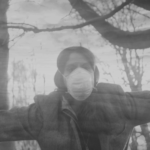Senior Officer Suspended for Sexist and Homophobic Posts

New South Wales police officers have been caught red-handed again, after a Sun Herald investigation uncovered a campaign of intimidation and harassment against Newtown MP Jenny Leong.
Police personnel at Sydney City, Kings Cross, Bankstown and Cabramatta Local Area Commands, along with members of the force’s senior management, have been exposed for posting graphic, and often racially-charged, comments on the MP’s Facebook page, in breach of police social media policy.
After viewing the material online, the New South Wales Police Force advised it had “acted immediately to suspend” an inner city based sergeant, who had previously posted a string of homophobic slurs and sexually degrading material about women.
In one online attack, a city-based detective posted a modified image of Ms Leong’s Facebook profile picture, adding the words: “One condom could have prevented this from happening”. Another officer ridiculed Leong’s ethnic background, referring to her father as a “swamp monkey”.
“Racism and sexism in our society is never acceptable, and while everyone knows there is a dark side to the internet, if these actions have been undertaken by members of the NSW Police serious repercussions must occur.” Ms Leong said.
Leong announced on Saturday that she had made a formal complaint to the Police Integrity Commission, describing how one officer changed his profile picture to an image of her, triggering a series of shocking comments. “The offensiveness of these comments is manifest,” she said.
A New South Wales Police Force spokesman confirmed that police would continue to investigate the conduct, and punish officers found to be involved: “it is clear they could contravene strict social media use policy”.
“Police officers are expected to behave at all times in a manner which upholds the integrity of their office and appropriate action will be taken against any found acting to the contrary.”
Police Implicated in Similar Attack
The incident follows similar revelations last week, where police were caught trolling the Greens’ ‘Sniff Off’ Facebook page.
The page, which is administered by Leong’s colleague David Shoebridge, is part of the party’s anti-sniffer dog push. It publicises the whereabouts of drug detection operations, and other information about the Greens’ drug policy.
Following reports of a dog operation at Sydenham station, two officers began posting comments denying police were there. The pair were refuted by other followers of the page, who insisted the dogs were still present.
Mr Shoebridge said the conduct was “disturbing.”
“Our very understanding of a liberal democracy – where the police are non-political servants of the law – is at risk unless this conduct is censured and the culture that allowed it to happen addressed.”
The attacks are a response to the Greens’ proposal that police should be required to obtain a warrant before using drug detection dogs in public places.
Police Commissioner Andrew Scipione has repeatedly confirmed the NSW Police Force’s opposition to any change in the sniffer dog program. Following calls for a review into their use last year, Scipione told ABC news:
“There are many that continue to this day to call for less police interaction, fewer drug dogs, in fact, no drug dogs, fewer police at these events. That will never happen.”
Police Abuse of Power
Compared to other public servants, police hold a unique position of power over members of the public – backed up by lethal force. And they are able to exercise many of their powers when off duty, including their broad powers of arrest. Many officers are quick to remind the public that they are police officers around the clock, whether on duty or not.
Police forces also have considerable influence over government policy, regularly flexing their muscle to bring about greater powers and funding.
During a pay dispute in 2009, police across the state went on strike and refused to issue fines for minor offences, a move that cost the Government $2 million. Two years later, they were exempted from a general pay freeze across the state’s public service.
Many similar campaigns have been waged by the powerful NSW Police Association over the years. Back in 2008, the government caved into its campaign to extend the use of tasers in Australia to all general duty police officers. We saw it again with the expansion of police arrest powers and ‘move on’ powers in years to follow, as well as laws allowing police to use ‘control orders’, ‘preventative detention orders’, and now ‘public safety orders’ and ‘serious crime prevention orders’.
All of these attracted considerable criticism, but it seems a government that has staked its credibility on ‘law and order’ issues is unwilling to risk offending police.
The police campaign against sniffer dog reform appears to be just another example of using bullying tactics to shape public policy, despite the overwhelming evidence that such operations are ineffective and dangerous.
Although the Sun Herald campaign has led to the suspension of one officer so far, it is rare that police officers are disciplined, let alone sacked or prosecuted for their conduct. According to one figure, less than 1% of complaints against police result in disciplinary action – a situation which many see as encouraging misconduct by those who are sworn to protect the public and uphold the law.






